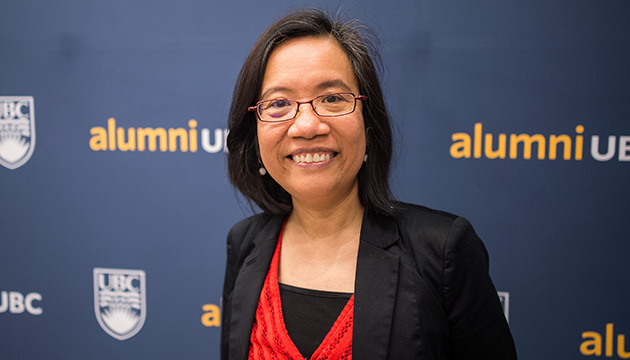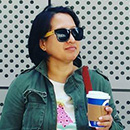In recognition of this year’s International Women’s Day and the International Day for the Elimination of Racism, the University of British Columbia’s Equity and Inclusion office, together with the alumni UBC, organized an evening of inspirational engagement featuring four women changemakers in British Columbia.
The event held at UBC’s Robert H Lee Alumni Center aimed to recognize the leadership of women and people of colour as they share what it takes to lead, succeed, and inspire change.
The March 14 gathering was dubbed ‘Lead, Succeed, and Inspire: An Evening with Changemakers.’
Federal Justice Minister Jody Wilson-Raybould delivered the opening remarks.
The speakers included Leonora C. Angeles, Associate Professor, Institute for Gender, Race, Sexuality and Social Justice; Patricia Barkaskas, Academic Director, Indigenous Community Legal Clinic; Instructor, Peter A. Allard School of Law; Cicely Blain, writer, facilitator, activist, artist, and founder, Black Lives Matter Vancouver; and broadcaster Shushma Datt.
The Canadian Filipino Net covered the event, and presents this transcript of what Angeles said about her life as a Canadian Filipino creating and sustaining meaningful change.
How have you become seen as a changemaker? What is your story?
I am a first-born daughter of a large family. I was told at an early age that I have a good head, good heart, dark-skinned and not so tall. It helped that I have a brother with Down syndrome. It helped me develop at an early age the power of empathy. Being a first born, who takes charge when parent is not around, helped me to understand what I can do well and what I cannot do well. So being able to self-assess, I have the pre-disposing factors in my life that led me to decide to become a changemaker. I was born and raised in a peri-urban community where there’s a lot conflict, social inequality and poverty. Early on, I was my mom’s helper in her farm supply store, which helped me learn how to deal with all types of people.
Lucky enough, I was able to go to the University of the Philippines, in the days when the campus was red- hot with student activism. The ‘80s enabled me and reinforced me to transition from student movement to women’s movement, which helped me pioneer and establish women’s and gender studies in three colleges in the Philippines. Unplanned move to immigrate to Canada introduced me to new opportunities for taking actions. Knowing that need, interest and identity lead to community building; you really have to know who you are and what your values are. Whatever talent or resources you have, big or small, all contribute to good change.
If you have a family that encourages you to address social injustice and inequality, do good governance and public service, which is an asset, you should lean into it and be part of it. If you are part of a more conservative family, but you are uncomfortable with it, your discomfort is your big resource and asset.
Intersectionality recognizes that certain groups of people have multi-layered facets in life such as racism. What are the other challenges that you have in facing multiple levels of bias?
Intersectionality seems to be a big term but the concept has been used in other context to really refer to interlocking identities, commonalities in forms of oppression that people experience -- be it class, gender, race, ethnicity, nationality, religion, cast, language based. It is something that is increasingly informing the way we think. The City of Vancouver is looking for proposals on how to integrate the intersectionality approach into all the services and policies in the city. It will be a trailblazer once a handbook or manual is done along these lines, how to operationalize it is really the challenge.
We have come a long way in terms of diversity and inclusion but we still have room for improvement as far as hiring practices is concerned. Yes, we need to look at the interlocking and the intersectional ways of hiring, but we should also look at the way we socialize children, the way we encourage families of color, new immigrants, refugees and indigenous people to succeed. We have to create enabling policies to ensure that the family’s success is the success of children realizing their dreams.
What actions, habits led to your trajectory of becoming a changemaker?
I make sure that I get good sleep, do quick stretches in the morning, and really be thankful, optimistic and hopeful all the time. It’s really easy to be depressed in an overwhelming systemic issue. I enjoy the little things in life. I try to speak from my heart. As an academic, there is a tendency to speak from the head. I just have to check in with myself, does this resonate with my values? Is it okay with my gut?
Being an activist can lead to burnout. If you really want to become effective in what you do, it is really important to keep yourself healthy and happy. If not, there is really nothing to hang onto if you want to continue doing the things that you want to do.
Can you tell us something where the path in your life is not obvious?
I wanted to become a lawyer. At that time, law was being used as a tool to resist oppression during the Marcos dictatorship. If I had become a labour or human rights lawyer, I would have been assassinated by now. So, becoming an educator has become a refuge during those turbulent times. Explore and understand what you like or what you don’t like, what interest you, what your passions are but also know where your talents are and the constraints on where you operate.
Where do you see the men in change making?
We have to raise feminist sons and feminist daughters. I’d like to see how we could work with men as our ally in the work that we do as changemaker, activist, or scholar. There are great men who believe in the causes that we believe in. I wish that we could have a counterpart #metoo movement to deal with micro-aggression and it could be perpetuated by people of all gender or sexual orientation. From small to broader actions, we can have allies from all genders and all walks of life in transforming policy-making institutions. It has to be from the bottom up and top down working together in order to create change.
Last thoughts on becoming a changemaker?
1. Persistence. Do not give up. Persistence is important if you want to be a changemaker.
2. Empathy and reflexivity. In whatever you do, it applies to yourself first. Cliché but true, be the change that you want to see in the world is important in developing reflexivity.
3. Build your capacity for leadership and leadership development to contribute to good change.
Effective leadership can create political and economic systems that will attract the best and talented competent people to design an enabling environment for human beings to flourish. Let’s think of changing the world not only for our children and grandchildren but also for our planet, our earth, the plants and animals and the natural environment in which we li



